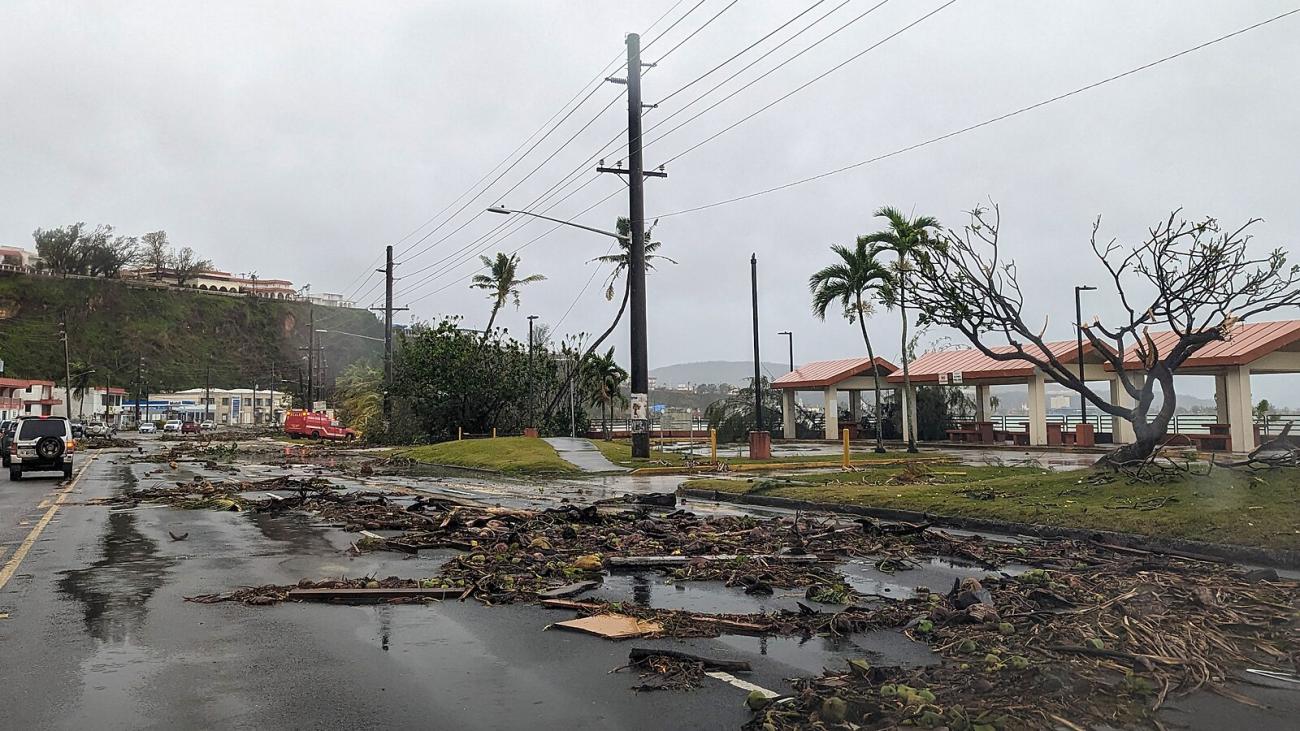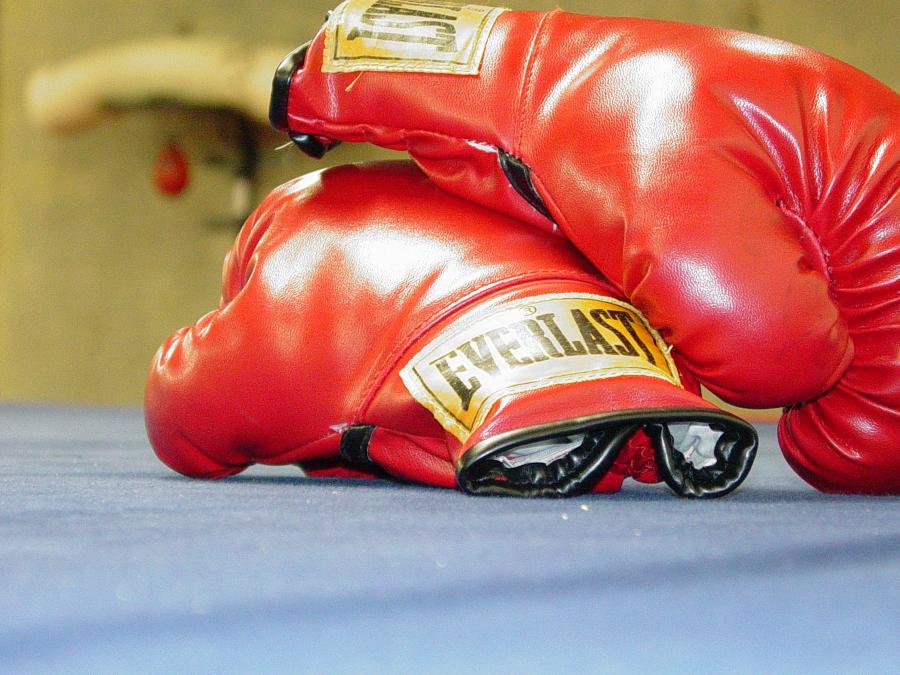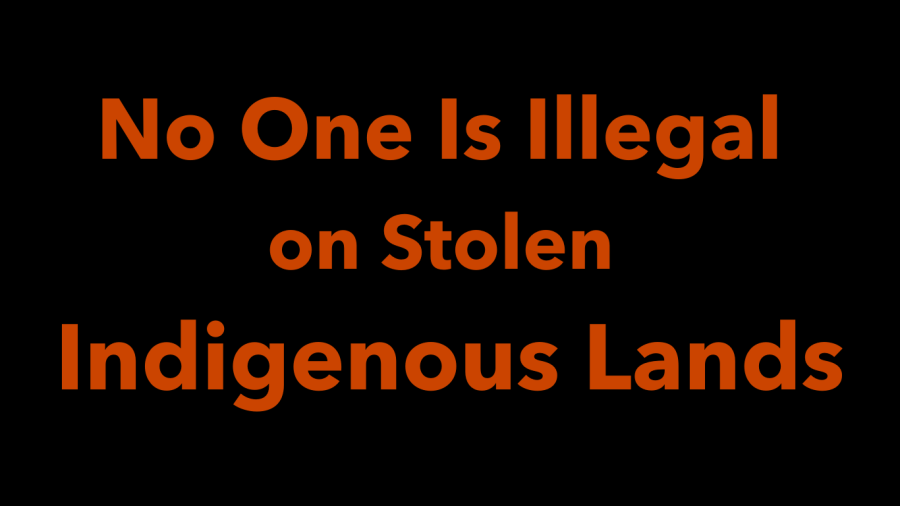
My landlord hasn’t removed the wooden boards from my windows yet. So, every morning I wake up to a dark apartment. It’s disorienting as much as it is a reminder of the darkness that is consuming our island; a darkness that is both literal and figurative. Literal, because half of the island’s power has yet to be restored. Figurative, because economic disparity is palpable (and sickening), especially in this time. This time that is post-disaster. This time that is just weeks after Typhoon Mawar stripped the people of Guåhan, my island and people, for everything we had.
Now, when I say “we,” I don’t mean everyone, of course. Well, I do but I don’t. I do because we are one people, so when one of us is suffering, then we are all suffering. And I don’t, because we exist in a capitalistic world where the more money and resources one has, the less one is physically affected by such things as natural disasters. The more money and resources one has, the more one is removed from earthly things such as connections to land and water, the pain of their neighbor, the reality that we are one people.
My landlord hasn’t removed the wooden boards from my windows yet. So, this morning I woke up to a dark apartment. But I woke up dry, warm, and safe. And I went to sleep knowing that I was going to wake up dry, warm, and safe. I went to sleep knowing I had food, a car, a job, and money for the things that I need. I am not one of the many that lost their homes and other great possessions in this typhoon. But I am, because we are one people.
My grandmother is one of the many whose homes were severely damaged. Half of it is still livable, but the other had its tin roof peeled back, picked up, and thrown into the yard, the jungle, and likely someone else’s yard, too. Everything that was once inside her bedroom, living room, and kitchen are all gone. That is, apart from the sink and refrigerator. The refrigerator still stands but since the power is off, we’re not sure yet if it’s functional.
Source: Wikicommons
My grandmother also experienced Typhoon Pongsona in 2002, the last powerful typhoon to hit Guåhan and Rota. Pongsona completely flooded her house, except for the walls of a small room. So, Mawar was not as bad for her. But what is much worse this time is the communication. She said that during Pongsona, and earlier typhoons, the people were always instructed on where to go for gas, water, and other basic needs. If you didn’t hear it on the radio or other media source, you’d hear it through word of mouth. But this time, she says, “No one knows anything.”
Thankfully, individuals and grassroots groups have been fundraising and providing disaster relief to the people. One example of this is a debris clearing volunteer event planned for this afternoon. Local Indigenous media organization, Nihi!, created this event to clear debris from a neighborhood where nearly everyone lost their homes. This neighborhood was one of the ones that got hit the hardest. But even among beautiful community efforts like this, the people continue to suffer due to inadequate, unjust, and poorly communicated recovery efforts.
For our people that became homeless because of this typhoon, there are emergency shelters set up within several of the public school buildings. But these shelters are simply unfit to house the great number of folks that need their services. They are unsanitary and provide very small rations of food and water. These shelters are funded and managed by the Government of Guam Department of Education. Now, the typhoon warning did come with short notice (as they often do), so the lack of time to prepare did not help. But still, we rely on our government to be ready for emergencies such as these.
Photo by Shaylin Salas.
And then there are our people that did not lose their homes but who have specific medical needs that require a source of power. They have medications that need to be refrigerated or they rely on medical equipment to sleep at night. What do these folks do while Guam Power Authority struggles to restore the island’s power? For the ones that can afford it, staying at the hotels that have gotten their power restored or have functional backup generators is an option. But, hotels are prioritizing rooms for active military service members, leaving many of our Elders to suffer without access to the medication or equipment that they need to survive while a young air force service member and their family of four sits comfortably on a king size bed in Dusit Thani, watching movies and ordering room service.
The Government of Guam was authorized by the legislature to use $50 million for emergency relief. But when legislative bills were proposed to use the money to provide the people with direct financial assistance, the Bureau of Budget and Management Research argued that the funds were not in the budget. Guåhan Senator Christopher Barnett, who is particularly vocal, called out the government during an Instagram Live video saying that the administration purposely held back on taking action to wait for FEMA and other federal disaster aid agencies to arrive and provide relief.
Photo by Shaylin Salas.
Now, these are just a few of the hardships that we are experiencing. There are many more unjust things going on, even among the federal aid agencies sent here to serve us. But do the people have a say in any of this? Where do we go to make decisions about current and future recovery efforts? We can’t go to the U.S. Congress, because as an unincorporated territory of the United States, Guåhan does not have a representative that can vote or make political decisions about our future. We can’t go to Pacific regional organizations, because our colonial relationship with the U.S. excludes us from building political allies and partners of our own. So where can we go to voice our needs and to make the decisions that need to be made for us?
Someone told me recently that our people are resilient and that we will get through this. I was polite and said thank you, but, in reality, I don’t want my people to be called “resilient” right now. We don’t need to be reminded of the burden of surviving these times. Everyone living today in this world is resilient. We all go through unspeakable things, and yet, we are. Resilience is a factor of biology. Animals (e.g., humans) are designed to endure and to prevail. That’s why we have immune systems and gravitate toward social organization. It is in our nature. So, yes, my people are resilient. But it's not because of who we are and our history as a people. It’s because we are Earth’s animals.
Ironically, the traumatic event that we have just experienced is not of nature. Far from it. Typhoon Mawar might be called a “natural” disaster, but there are very unnatural things about it. For one, the climate crisis played a significant role in shaping the strength and timing of this typhoon; a human-made crisis intensified by militaries, which are enormous fossil-fuel consumers and destroyers of biodiversity. Climate change is heating up the oceans, and the warmer water adds to the strength of storms like these. Mawar went from a Category 1 storm (74-95 mph winds) to a Category 4 (130-156 mph winds) in just one day. This gives people less time and notice to prepare, compounded by the fact that pre- and post-government disaster services are simply insufficient here. We would have an easier time enduring and recovering from powerful natural disasters if we were led by people and organizations that prioritized our health and well being.
Photo by Shaylin Salas.
In the face of a truly natural phenomenon then, you can describe us as “resilient” (if you must). But in the aftermath of a disaster caused by the climate crisis and worsened by greedy governments, capitalistic exploiters of disaster-stricken Peoples, and forced militarization, I ask that you please refrain. Whatever you want to call us at this time, let it not be “resilient.”
Let it be “climate change frontliners,”
let it be “survivors of ongoing colonization,”
let it be “powerful Indigenous Peoples,”
let it be “protectors of lands experiencing relentless militarization,”
let it be “mañelu-hu (my siblings),”
let it be “people holding great trauma,”
let it be “taotao tano yan tasi (people of the land and ocean),”
let it be “family, relatives,”
let it be “humans.”
For ways to offer help to the people of Guåhan, follow Instagram accounts @paratodushit, @micronesiaclimatechangealliance, @nihikids, or @gusustainable.
--Shaylin Salas (Chamoru) is a Cultural Survival Indigenous Youth Fellow.
Top photo: Source: Wikicommons



